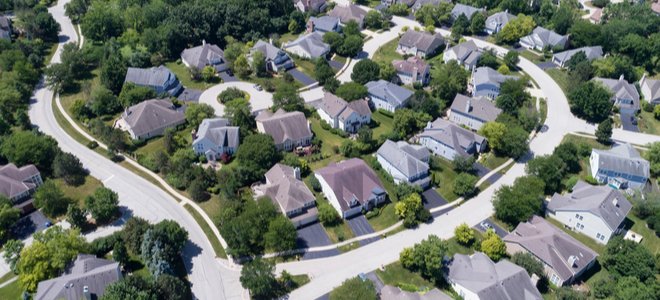
Zoning is certainly a confusing topic, but it’s important to have a basic understanding of it in relation to your home. Let’s go through the basics to enhance your knowledge as a homeowner.
What Is Zoning?
Everyone has heard the phrase “zoning” about lands, buildings, and homes, but you may not have a strong grasp of what the term actually means. You’re certainly not alone in this! Zoning and the laws surrounding this topic help regulate land use within a city, state, or municipality. In layman’s terms, it provides guidelines and control over how land within this taxing authority can be developed and what purposes the land can serve.
For example, zoning keeps a certain area of your town a “commercial district” with stores and restaurants versus a neighborhood a “residential area” devoid of those types of entities. A neighborhood can be zoned specifically for single-family homes. In contrast, other areas are zoned to allow for multi-family properties or multi-use properties with apartments and stores or restaurants. Zoning is also a tool for keeping industrial structures away from residential areas for the safety of a given community.
Zoning laws are also used to specify “rules” for buildings in certain areas. For instance, they dictate how tall a building can be or how far back from the road a structure has to sit.
To put it simply, zoning is used to preserve the safety and health of a community by instilling certain boundaries that keep its residents happy and secure. You can thank zoning laws and regulations for keeping you from living next to a loud factory or somewhere that produces potentially dangerous pollution unsafe for individuals to live next to.

It’s helpful to think about your city or town and the master plan that the city’s decision-makers have for the area. This “master plan” is, in essence, a document that lays out what the municipality’s goals are for the people living there and how the lay of the land will work in conjunction with those goals.
When the decision-makers decide things regarding zoning within that area, they will consult the master plan. It takes things like the community’s transportations needs, the overall economy, known obstacles and challenges, residents, homes, areas of recreation, and businesses into consideration in all decisions.
The master plan is a blueprint that helps guide zoning laws, decisions, maps, and ordinances. As communities grow and evolve, so does the master plan, and thus, so do zoning laws. The zoning ordinances put the master plan in motion, ensuring land is used appropriately to protect the interests and safety of the residents living within the community.

Discovering Your Areas Zoning Laws
Every city, state, or town carries its own zoning rules and regulations. For that reason, if you’re building a home, putting an addition on, or doing work to a structure you own, you’ll always want to gain an understanding of your local zoning laws. To do this, you’ll need to inquire with your local government.
Where and how you can attain this information typically varies by state and city. Start by checking in with city hall as they’re likely to have the information or be able to lead you in the right direction. You can also do an online search to see if the laws in your area are readily available. The internet is filled with resources to attain zoning maps and ordinances, which are a great jumping-off point when you’re on the road to starting a project.
Why Check Local Zoning Laws?
While zoning laws are not typically restrictive – especially for residential areas – they’re important to check in on. For instance, if you’re looking to install a chicken coop in your backyard so that you can harvest fresh eggs, this could be against local zoning regulations. The same goes for someone who wants to run a business out of their home or garage.

Zoning comes into play most frequently when you’re looking to do anything to the structure of your home: installing an addition, adding a fence to your yard, and so on. While you have free reign to do these things to your home (of course!), zoning can dictate certain restrictions surrounding things like the maximum height of the fence.
Zoning laws also help homeowners understand when there’s the need for a building or other permit to make the changes to their home or yard that they have in mind. Checking the zoning laws before moving forward with a home venture ensures that you’re checking all the boxes to complete the project lawfully.
Zoning can be intimidating when you’re starting a project, but it’s quite simple once you break it down. As long as you make an effort to find the information you need within your community and adhere to the municipality’s boundaries, your project should be a breeze.
Source link : https://www.doityourself.com/stry/zoning-laws-101












